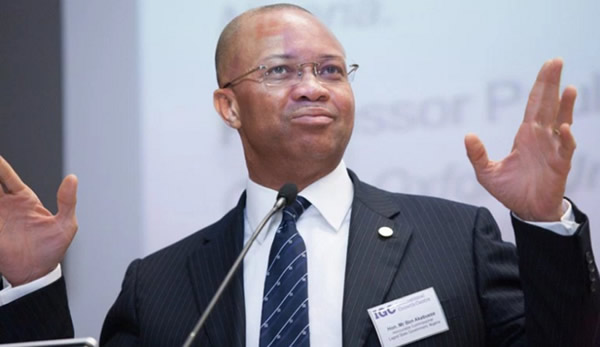Business
Nigeria’s Budget Office Examines the Link Between Budgets and Underlined Development Agenda’s

by Tahiru Sherriff
Nigeria’s complex budget system continues to raise questions across different sectors, and one of these is the development sector – the Director of the Budget Office says that there has to be a relationship between the budgets and underlined development plans for the country to work better.
Hon. Akabueze who was a part of the technical committee set up by Senator Bukola Saraki in July 2016 made the statement while speaking during a session with Social Media influencers and CSO’s organized by the National Institute for Legislative Studies to discuss the appropriation/budget reform process. The reform discussion is a follow up on the report by the technical committee which was set up to draft a budget reform process.
Akabueze’s statement reflects a recurrent problem in the budgeting system used in Nigeria. In December 2017, the Senate President Bukola Saraki commented that the budget was heavily padded, inconsistent, full of errors and inaccuracies. Each year the budget faces three major setbacks that completely halt government activities and keeps the country in a stagnant state. In November President Muhammadu Buhari submitted a budget of over N8 Trillion naira (roughly 16% above the 2017 budget) to a joint session of the National Assembly for consideration and approval. The aggregate expenditure comprises recurrent costs of N3.494 trillion; debt service of N2.014 trillion; statutory transfers of N456 billion; sinking fund of N220 billion; and capital expenditure of N.428 trillion. This is expected to receive approval early this year.
Budget Vs Development
Buhari’s presentation speech while delivering the budget touched on some of Nigeria’s key development gaps: The Ogoni clean up, the North East initiative, School Feeding programmes and the health sector – yet these amounts are significantly small when jointly compared against infrastructure development programmes such as housing which which is over half a trillion. But drawing up a budget is one thing, and implementing it is another. Director General of the Nigerian Institute for Legislative studies Prof. Ladi Hamalai says ‘there is no incentive or penalty to implement budgets in Nigeria. As a result, planned development items are often carried on as the years go by.’
The budget will eventually be passed, but tracking the projects that ought to be handled by the allocations will not be very easy. BudgIT has a project that has been working towards leveraging on citizens to actively track projects in their constituency via its project Tracka. The donor funded project social platform allows citizens to track the progress – or lack thereof – of budget implementation at grassroots level.
People and Budgets
During the session held in Abuja the invited civil society organizations touched on the issue from budget preparation, enactment and implementation. One respondents comment was about how the NILS dealt with the issue of what would be selected and budgeted for. In his words, we know that roads and building and bridges are good, but what about the drug problems that youths of this generation face, why isn’t this a big part of the budget? How do our representatives decide on what should be budgeted for and what should not?
Beyond the challenges of getting a budget prepared, and enacted into law there is the politics of even discussing about the budget. “The budget was ready to be presented since August, the National Assembly was on vacation at the time. Then they extended their vacation to September, and we went to present it and was told that the mood of the nation wasn’t right – they asked for a meeting first” lamented Akabueze.






